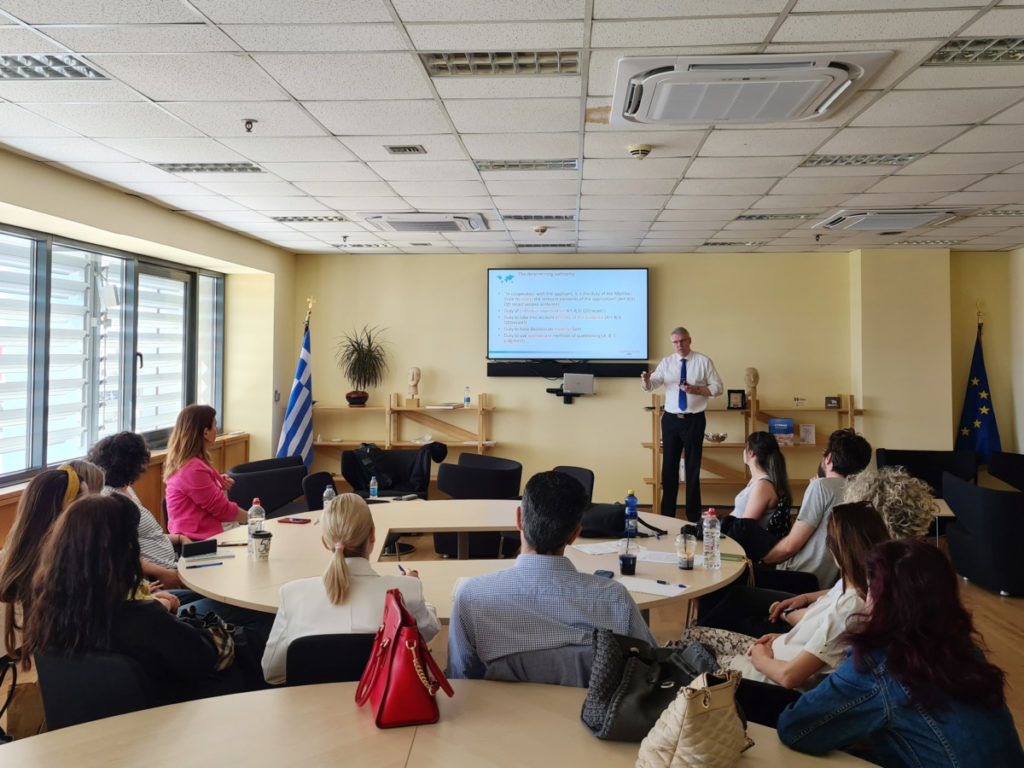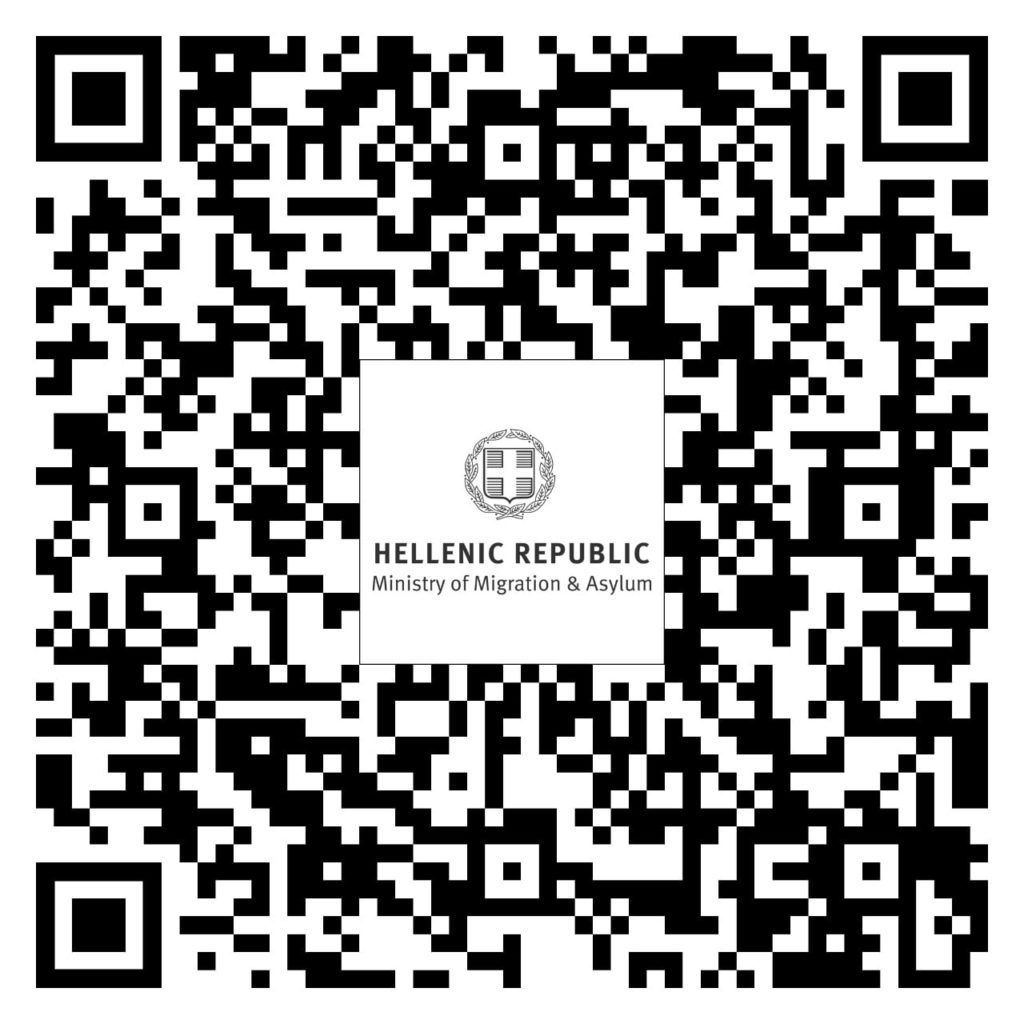The 2nd European Border Management Conference was held in Athens on 23 and 24 February 2023, with co-host countries Austria, Greece, Lithuania and Poland.
At the end of the proceedings, the Joint Declaration of Conclusions was signed by a total of 15 participating Member States.
The text of the Joint Declaration
UNOFFICIAL TRANSLATION
Joint Declaration of the Conference on Border Management
Athens, 23-24 February 2023
We, the Representatives of Austria, Bulgaria, Croatia, Cyprus, Czechia, Denmark, Estonia, Greece, Hungary, Latvia, Lithuania, Malta, Poland, Romania, Slovakia have met on 23-24 February 2023 on the occasion of the 2nd European Conference on Border Management in Athens, and after broad discussions on possibilities, tools and measures to scale up our efforts in tackling current challenges in the field of irregular migration and preventing future crises, have found the common ground on the following:
- We recall the positions taken under the Joint Statement which a number of Member States signed on 21 January 2022 in Vilnius regarding external border protection, instrumentalisation of irregular migration, support for frontline Member States, security and integrity of the Schengen area and external actions to prevent and to counter irregular and secondary migration, including capacity building in the area of border management in relevant third countries along the major migratory routes.
- In line with European Council conclusions of 9 February 2023, we underline the importance of the effective control of EU’s external borders.This requires legal, financial, operational and technical measures as well as a whole-of-the-route approach. In the case of Cyprus, adequate assistance and measures should be provided and applied at the Green Line, which although not an external border, it is the main point of entry for irregular migrants into the areas which are under the effective control of the Government. We welcome the progress made on relevant legislative files.Ηowever, further efforts are needed to address the gaps in existing EU legal framework. In this regard, we call for the swift adoption of the amendments to the Schengen Borders Code as well as completion of work on the relevant legislative proposals with the aim to swiftly ensure the normal functioning of the Schengen Area, as well as for progress, in particular concerning countering instrumentalization of migrants for political purposes, and measures against transport operators engaged in or facilitating migrant smuggling and human trafficking.
- More effective border control implies the need of reinforcing operational capabilities, where possible with neighboring countries, as well as infrastructure (mobile and stationary), means of surveillance (including pre-frontier aerial surveillance) and equipment. EU external border protection could be further strengthened by means of common minimum standards for external border surveillance. Being a shared responsibility, this requires substantial EU funding and full use of the potential of relevant EU agencies.
- In that respect, we call upon the European Commission to commit adequate financial support to frontline Member States at the external borders, including the Green Line in the case of Cyprus which does not consist an external border, for all types of border protection infrastructure including physical barriers and other related reception costs, taking into account the needs expressed by Member States in light oftheir border specificities, as well as their geopolitical and geographical particularities. The support of Frontex should also be increased and fully deployed in the most affected Member States.
- In line with this, we call upon the European Commisson to also financially support Member States who bilaterally support other Member States and partner countries in their border management or return activities. Moreover, the support to third countries should be continued and upscaled to provide for comprehensive partnerships, including in the area of migration.
- We remain committed to work towards a common and sustainable EU migration system and legal framework based on the right balance between solidarity and responsibility, according to the needs and the preferences of the Member States, and addressing irregular migratory flows as well as secondary movements. In line with this, it is worthwhile exploring the possibility of, and where relevant legally enabling, safe third country arrangements with relevant countries along the EU’s external borders and beyond. In order to find solutions to the existing challenges we also call upon the European Commission to continue the work with a view to overcome current obstacles, and explore more possibilities for accelerated procedures followed by rejections in case of unfounded asylum applications, as well as comprehensively using the concept of safe countries of origin and safe third countries.
- We call upon the European Commission to swiftly take steps towards implementation of the measures under the existing EU acquis, in line with the European Council conclusions of 9 February 2023, including on the border management pilot projects, also building on the existing best practices at EU level.
- We welcome the Swedish Presidency’s focus on the external dimension of migration, including a more coherent and strategically focused outreach to enhance return-cooperation by third countries and increased operational actions (i.e. joint return operations). The EU needs to act in a collective and coordinated spirit in order to ensure the implementation of the existing agreements and arrangements relating to returns and readmissions in close cooperation with the EU return coordinator and, if needed, conclude new ones. We need to align our initiatives towards achieving a higher commitment by third countries to assume readmission obligations, hence increase the return rate, including through the use of Article 25A of the Visa Code, the visa suspension mechanism, and other leverages of all relevant EU policies, instruments and tools. We commit to enhancing activities with a view to finding solutions for international protection to be provided in third countries. Also, it is important to further strengthen strategic communication capacities to prevent disinformation and ensure timely awareness campaigns aimed at potential irregular migrants.
- Meanwhile, we stand committed to offering protection to those in need, and in this regard, we will continue supporting Ukrainian people, fleeing the brutal war of aggression of the Russian Federation against Ukraine.


